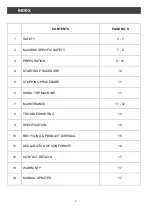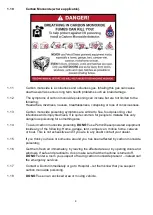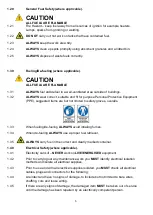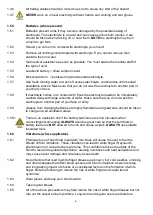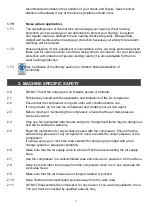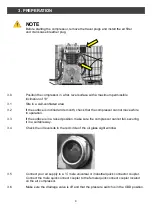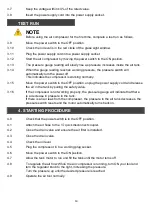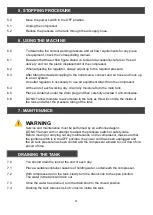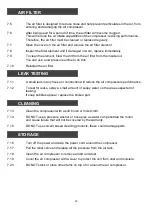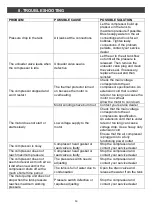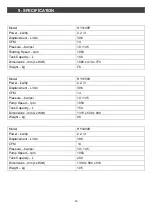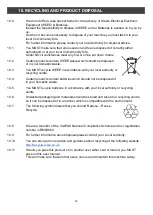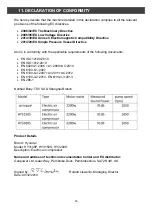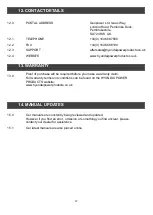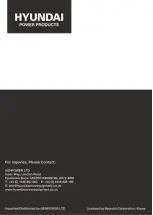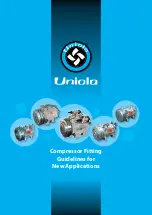
8
2.12
2.13
2.14
2.15
2.16
2.17
2.18
2.19
2.20
2.21
2.22
2.23
2.24
DO NOT operate the compressor within the vicinity of flammable liquids, gases or
solids.
DO NOT touch the compressor cylinder, cylinder head or pipe from the head to the
tank as these may be hot and will remain so for some time after shutdown.
DO NOT operate the compressor without all the safety guards in place.
DO NOT attempt to move the compressor by pulling the air hose.
DO NOT use the compressor for a task for which it was not designed.
DO NOT deface the certification plate attached to the compressor tank.
DO NOT operate the compressor without an air filter.
DO NOT allow anyone to operate the compressor unless they have received full
instruction.
DO NOT leave the compressor unattended.
DO NOT block the ventilation grills.
DO NOT cover the compressor or restrict airflow around the machine whilst it is
operating.
The air tank is a pressure vessel and the following safety measures apply;
DO NOT tamper with the safety valve DO NOT modify or alter the tank in any way.
DO NOT strap anything to the tank.
DO NOT subject the tank to impact, vibration or heat.
DO NOT allow contact with abrasive or corrosive materials.
YOU MUST drain condensation from the tank daily and inspect side walls for corrosion
every 12 months.
Correct Personal Protective Equipment (PPE)
MUST
be worn at all times when
operating or repairing this machine. This should include but is not limited to;
2.25
The compressor is fitted with a standard 13amp, 230v (50Hz) plug for connection to
a standard 13amp domestic electrical power supply.
2.26
If the plug should need changing at any time, ensure a plug of identical specification
is used.
2.27
The fuse in the plug must be replaced with one of the same rating.
2.28
We recommend that the compressor is connected to the mains supply via a
Residual Current Device (RCD).
2.29
DO NOT use with damaged cables and only use the correct rated extension cords.
2.30
If in doubt, consult a qualified electrician.
ELECTRICAL CONNECTION
S
The pressure safety valves on Hyundai compressors have been updated to comply
with the latest CE certification standards. The pressure release pull ring has been
removed from the valve due to the pull ring being incorrectly used to drain the air from
the compressor tank, causing excessive wear to this safety valve. The air and moisture
should drained from the tank by releasing the drain valve on the bottom of the tank.
2.3
1


